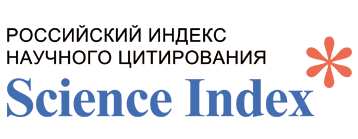REPRESENTATION OF THE LINGUISTIC CULTURES THROUGH FOLKLORE TEXTS
Аннотация
This research is devoted to the study of the linguistic expression of the national cultural notion in the folklore text on the example of the Kazakh and English linguistic cultures. According to the principles of modern linguistics, based on the anthropocentric paradigm, the definition of the individuality of each linguistic cultures (in this case, the Kazakh and British linguistic cultures and their languages) correspond the national and cultural values with a particularк importance.
The reserach's main aim is to describe the features of the concept "tapkyrlyk-ingenuity" in folklore texts of Kazakh and British linguistic culture. The subject of the study is two fairy tales of linguistic cultures, "Jack and Beanstalk" from British folklore and "Cunning Aldar Kose" from Kazakh folklore. This study was qualitative and used ethnographic strategies. In addition, data obtained through questionnaire and text analysis. The relevance of this work is seen in the need to preserve and develop the folklore heritage of the people, which is the cultural identity of a particular ethnic group and has accumulated centuries-old spiritual and practical experiences of linguistic cultures. The results of the analysis allow the reader to draw some particular conclusions that are of interest for research that having certain distinctions in usage of the concept “tapkyrlyk- ingenuity”.
Ключевые слова:
values, folklore, fairy tales, linguistic picture of the world, concept, culture, linguistic culture, worldviewБиблиографические ссылки
Shchankina E. V.Krasheninnikova Fol'klornaya sostavlyayushchaya kak element otrazheniya russkoj kartiny mira [Folklore component as an element of reflection of the Russian picture of the worlD] / - Text: direct // Young scientist. - 2011. - No. 11 (34). - T. 1. - S. 210-213. — URL: https://moluch.ru/archive/34/3926/ (date of access: 02/13/2023) in Russian
Kaminskaya E. A. (2014) Kul'turnye smysly tradicionnogo fol'klora kak nositelya pranauchnogo znaniya [Cultural meanings of traditional folklore] Bulletin of the Chelyabinsk State Academy of Culture and Arts. /2 (38) in Russian
Anikin,V.P (1987) Russkyi folklor [Russian folklore] Moscow,
Konyratbaev,A. (1991) [Kazak folklorynyn tarikhy] Kazakh folklore history. - Almaty, Ana tili,- 288p
Sidelnikov, V.M. (1971) Kazakh folk tales [Text]. In 3 volumes. V.1 / ed.. - Alma- Ata: Zhazushi,. - 312 p.
Belokurova, S.P. (2005) Dictionary of literary terms, electronic version
Propp, V.Ya. (2001) Morphology of a fairy tale. Scientific edition, textual commentary by I.V Peshkov. - Publishing house "Labyrinth", Moscow, - 192 p.
Babenko, L.G.(2004) Philological analysis of the text. Fundamentals of theory, principles and aspects of analysis: Textbook for universities. - M.: Academic Project; Ekaterinburg: Business Book, - P. 255–265; pp.287–294
Maslova, V.A. (2004) Introduction to cognitive linguistics: textbook. allowance. Moscow: Flinta‒ 296 p. undergraduate. — M. :
Maslova, V.A. (2007) Philological analysis of a literary text: textbook. manual for academic
Karasik, V.I. (2004)Language Circle: Personality, Concepts, Discourse Yurayt Publishing House, 2019. — 147 p. — ( Series: Bachelor. Academic course ).. Volgograd: Change ‒ 477 p.
URL: https://sozdikqor.kz/soz?id=316649&a=TAPQYRLYQ
URL: https://dictionary.cambridge.org/dictionary/english/resourceful
Auezov, M. (1959) Thoughts of every year. Almaty
Alan Sepinwall (7 Apr. 2023), Rolling Stone,
Опубликован
Как цитировать
Выпуск
Раздел
Лицензия
Copyright (c) 2023 Bulletin of Shokan Ualikhanov Kokshetau University Philological Series

Это произведение доступно по лицензии Creative Commons «Attribution-NonCommercial» («Атрибуция — Некоммерческое использование») 4.0 Всемирная.











